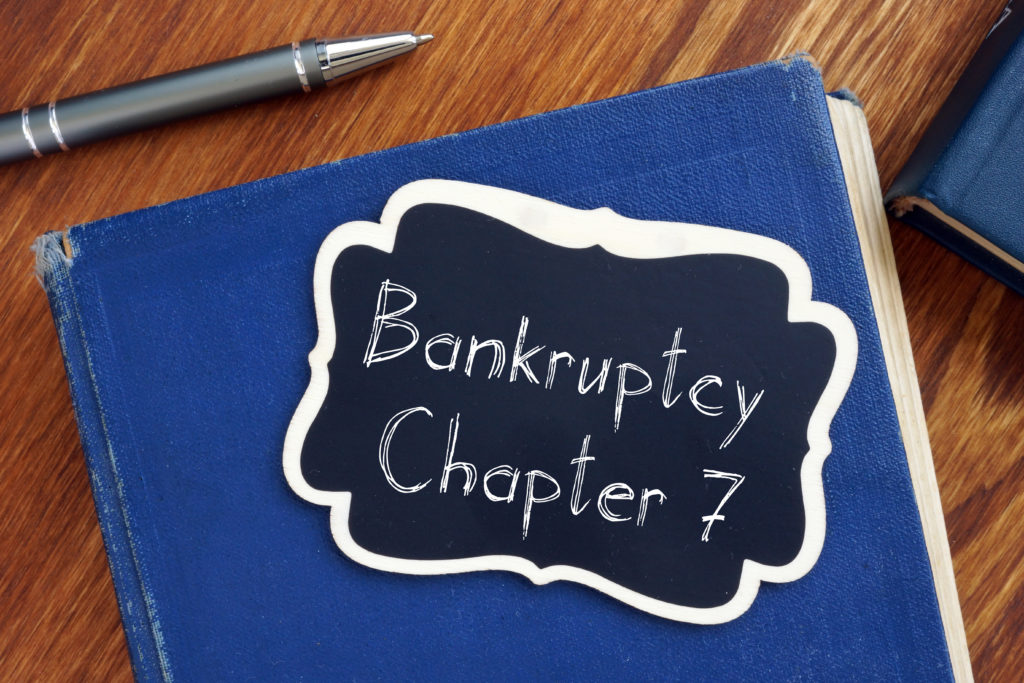
For many people, the word “bankruptcy” has a negative connotation. However, bankruptcy can be extremely beneficial, as it can provide the relief you need to regain control of your financial situation.
Bankruptcy is a complicated legal process, and there are some potential drawbacks to filing. If you are having problems paying your debts, you should always speak to an experienced bankruptcy attorney who can help you determine whether bankruptcy is right for you. The following is a brief overview of the pros and cons of filing a Chapter 7 bankruptcy.
Advantages of Chapter 7
The main reason that people file for Chapter 7 bankruptcy is to get a fresh start by wiping out their debt. Chapter 7 can relieve the pressure of overwhelming debt in different ways, including:
- Automatic stay – When you file your bankruptcy petition, the court issues an “automatic stay” that takes effect immediately. The automatic stay means all debt collection efforts must stop, including calls, letters, garnishments, and lawsuits. It also temporarily stops repossessions, evictions, and foreclosures.
- Discharge of debts – If your bankruptcy case is successful, it will end with a discharge of many types of debts, such as credit cards, past due rent and utilities, medical bills, and personal loans. This means you will not have to make payments on these debts ever again, and creditors are permanently banned from trying to collect on them.
- Keep most assets – In addition to eliminating debt, Chapter 7 also allows you to keep most of your assets, including work items, furnishings, clothing, and retirement accounts. Your house and vehicle are also exempt up to a certain value.
- Protect future wages – Once you file under Chapter 7, creditors cannot garnish your wages to collect money you owe. Part of your fresh start includes being able to keep all your future paychecks.
- Over quickly – Chapter 7 bankruptcy is a quick and efficient process that usually only takes 3 to 4 months to complete.
Disadvantages of Chapter 7
Chapter 7 bankruptcy is not right for everyone, so you should consider the negative consequences of filing as well. The following are some of the most common disadvantages of Chapter 7:
- Liquidation – The bankruptcy court may require you to turn over certain property and assets, such as luxury items, to repay money toward your creditors. There are exemptions under the law, however, that help you protect most of your property and assets, and a skilled attorney can help you find all the exemptions you’re entitled to claim.
- Not all debts are discharged – While many types of debts are dischargeable, other major debts, such as student loans, certain taxes, alimony and child support, will not be discharged.
- Affects credit score – A Chapter 7 bankruptcy will negatively affect your credit score and stay on your record for up to 10 years. It is possible, however, to rebuild your credit quickly after a Chapter 7 filing.
- Limits future bankruptcy options – Once your bankruptcy is complete, you can’t file another Chapter 7 bankruptcy for 8 years. You should consider whether it would be better financially to file now or keep it as an option for later.
Are You Eligible?
To file under Chapter 7, you must first pass a “means test,” and those who make too much money may not qualify. To decide whether you pass, the court will examine whether your monthly income is less than the median income for the same size household in your state. If it is, then you can file for Chapter 7 bankruptcy.
If your income level is higher than the median, the court looks at whether you have enough disposable income left over after paying your monthly expenses (i.e., rent or mortgage, car loan payments, taxes, utilities, etc.) to pay at least part of your debts that are unsecured, or not tied to a specific asset, such as medical or credit card bills. If your disposable income is too high, you fail the means tests and cannot discharge your debts under Chapter 7, though you still have the option of filing for bankruptcy under Chapter 13.
If you are a business owner, you must also analyze whether your debts are related to consumer or business expenses. This is because those with mostly consumer debt must pass the means test, whereas those whose debts are more than 50% business related get to skip the test.
Can Bankruptcy Stop an Eviction? Is Chapter 7 Bankruptcy Right For You? Contact Levitt & Slafkes to Learn More Today
Filing for bankruptcy is an important decision with long term consequences. An experienced bankruptcy lawyer can help answer any questions you have about whether Chapter 7 bankruptcy is the best option for you or not.
To schedule a free consultation, please call Levitt & Slafkes at 973-323-2953 or contact us online.


